Unit 42: Social and Emotional Development Assessment for Students with Autism
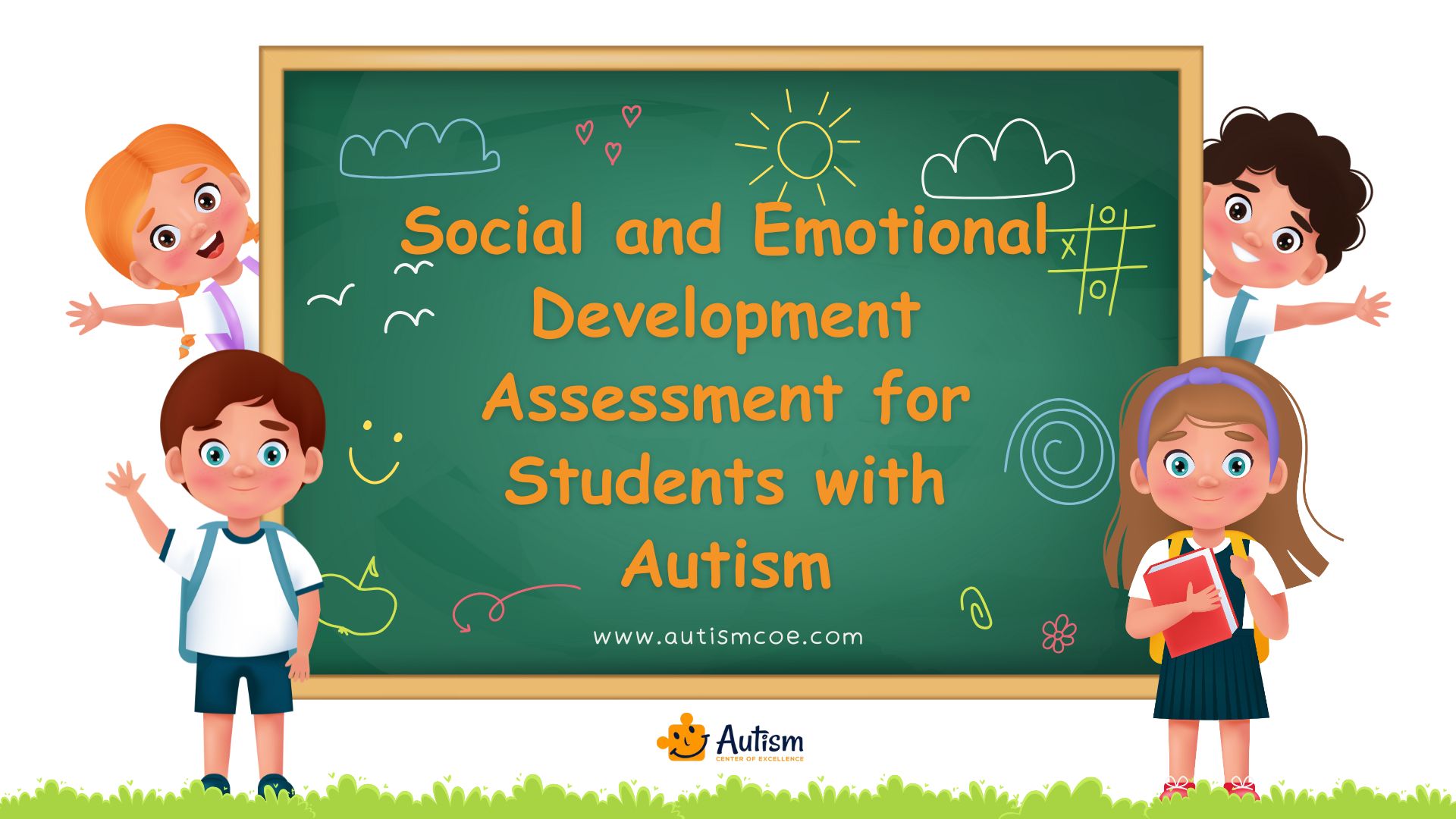
Understanding social and Emotional Development is like discovering the secret ingredients that help students with autism grow and thrive. Students with autism often require special support in making friends, understanding feelings, and navigating social situations. That’s where social-emotional assessments come in—they’re like a special map that guides parents, teachers, and caregivers to better support each student.
By using tools like social-emotional screening and emotional development assessment, we can identify the specific areas where each student might need a little extra help. This is why the importance of social emotional learning is so crucial. It’s not just about helping students fit in; it’s about celebrating their strengths and giving them the boost they need to shine. Through this process, we can create a more joyful, inclusive learning environment where every student feels valued and supported.
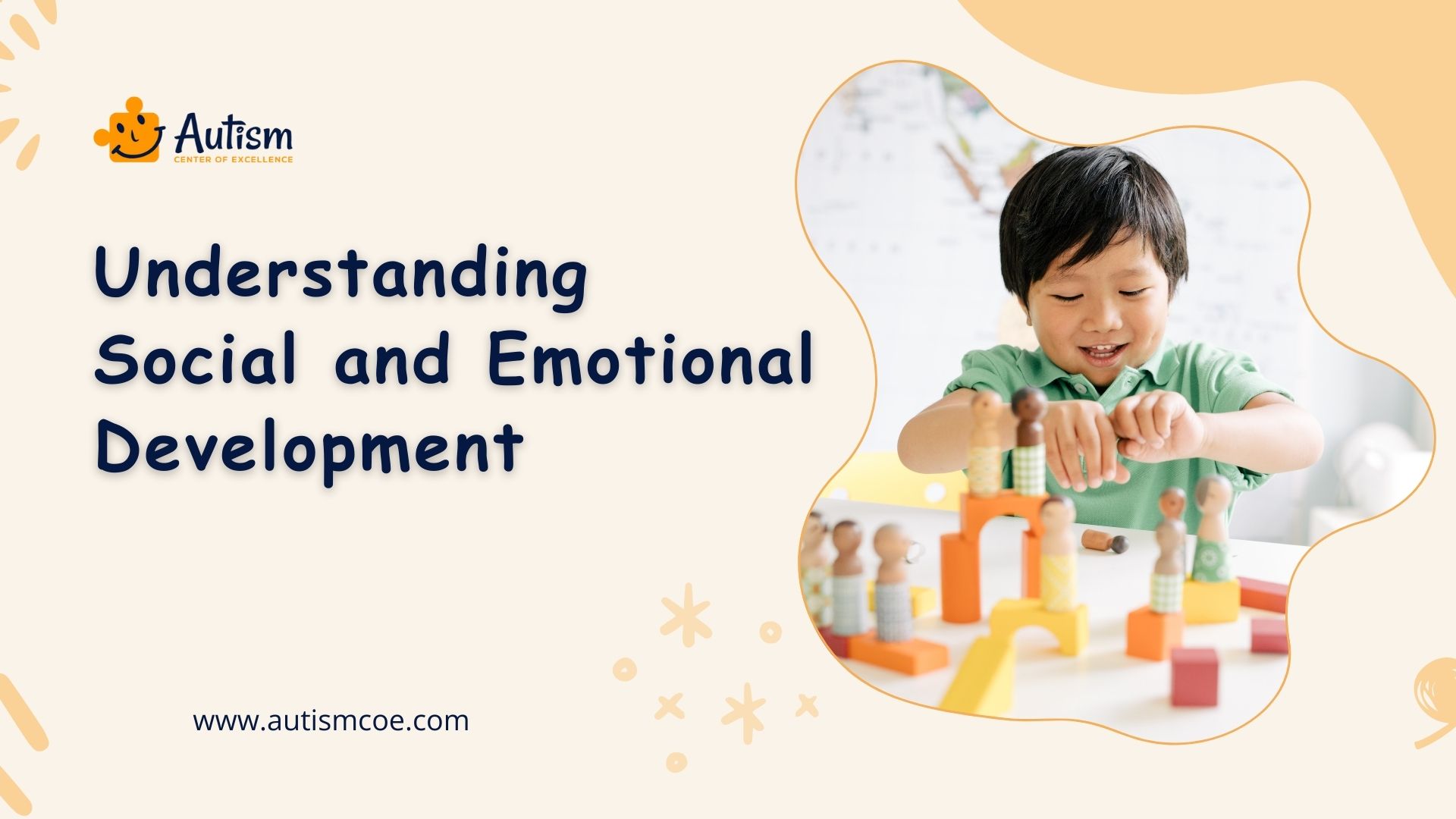
What is Social and Emotional Development?
Social and Emotional Development is a superpower kit that helps us be introspective about ourselves and reach out to people around us. It consists of self-awareness, self-regulation, social skills, and empathy. All these elements are critical for personal feelings and interaction with the world. Social-emotional assessments for students, such as emotional and social development assessments, help identify strengths and weaknesses.
High social and emotional skills open magical doors to opportunities to better solve problems, stay calm, and achieve academic success. Social-emotional screening and assessment allow us to reach students, giving them what they need to excel in and out of the classroom. The importance of social-emotional learning is quite great put students in a happy, supportive environment to grow and learn.
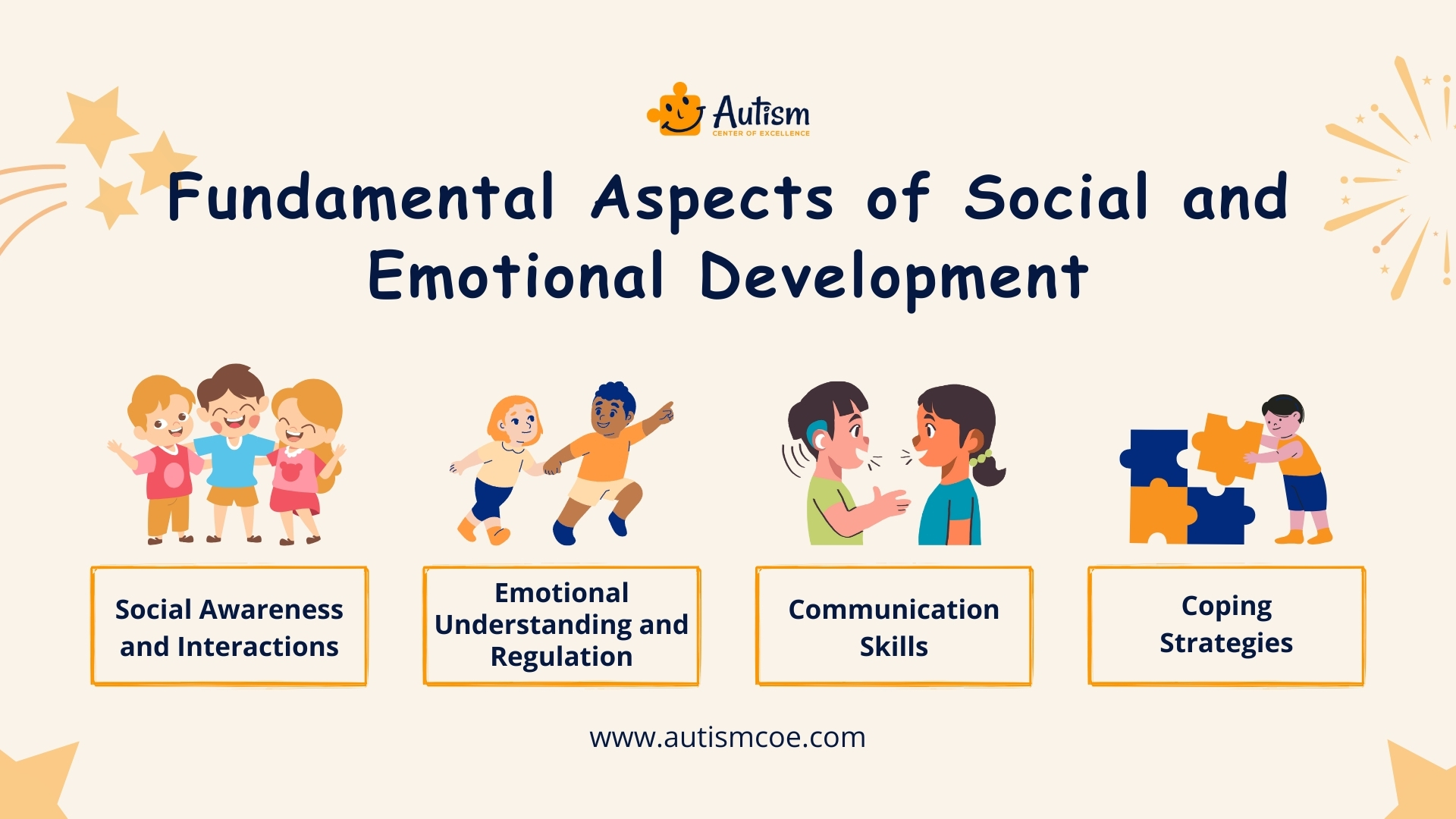
Key Areas of Social and Emotional Development Assessed in Autism
Understanding social and emotional development is how students with autism begin to unlock their potential. Assessing areas such as social awareness, emotional understanding, communication, and coping strategies will allow us to provide appropriate help to these students so they can be successful. Social-emotional assessments are pivotal in our roles as we identify any strengths or areas to improve in creating nurturing environments while being most effective in our learning environments.
1. Social Awareness and Interactions
This superpower helps us notice what is going on around us and understand how to join in and make friends. For students with autism, social development assessment can reveal how they are perceiving and interacting with others. We can train them to connect better with their peers and hence find playtime and teamwork more enjoyable and successful by focusing on social interactions.
2. Emotional Understanding and Regulation
It’s the remote control for the feelings. It helps students to understand their feelings and emotional regulation. An emotional development assessment could pinpoint how well students understand their feelings and teach them ways to stay calm and focused even in challenging situations.
3. Communication Skills
Communication is like a bridge that connects us to others, allowing us to share thoughts, ideas, and feelings. An assessment of the social and emotional competencies of a child with autism can help identify communication strengths, which may require additional remediation as the student gets older. Improving such skills can promote more effective expression and increase understanding of one another; hence, improving relationships and academic performance.
4. Coping Strategies
Coping Skills act as a toolkit for dealing with stress and solving problems. They are helpful approaches through which students can positively meet difficulties. Social-emotional screening can pinpoint which strategies a student already uses well, and which new strategies might help him to handle challenges more effectively. By building this strong coping skill, students can handle the ups and downs of life with confidence and resilience.
With a focus on these key areas, we can ensure that the support provided is as effective as possible, helping students with autism to shine brightly in their own unique ways.
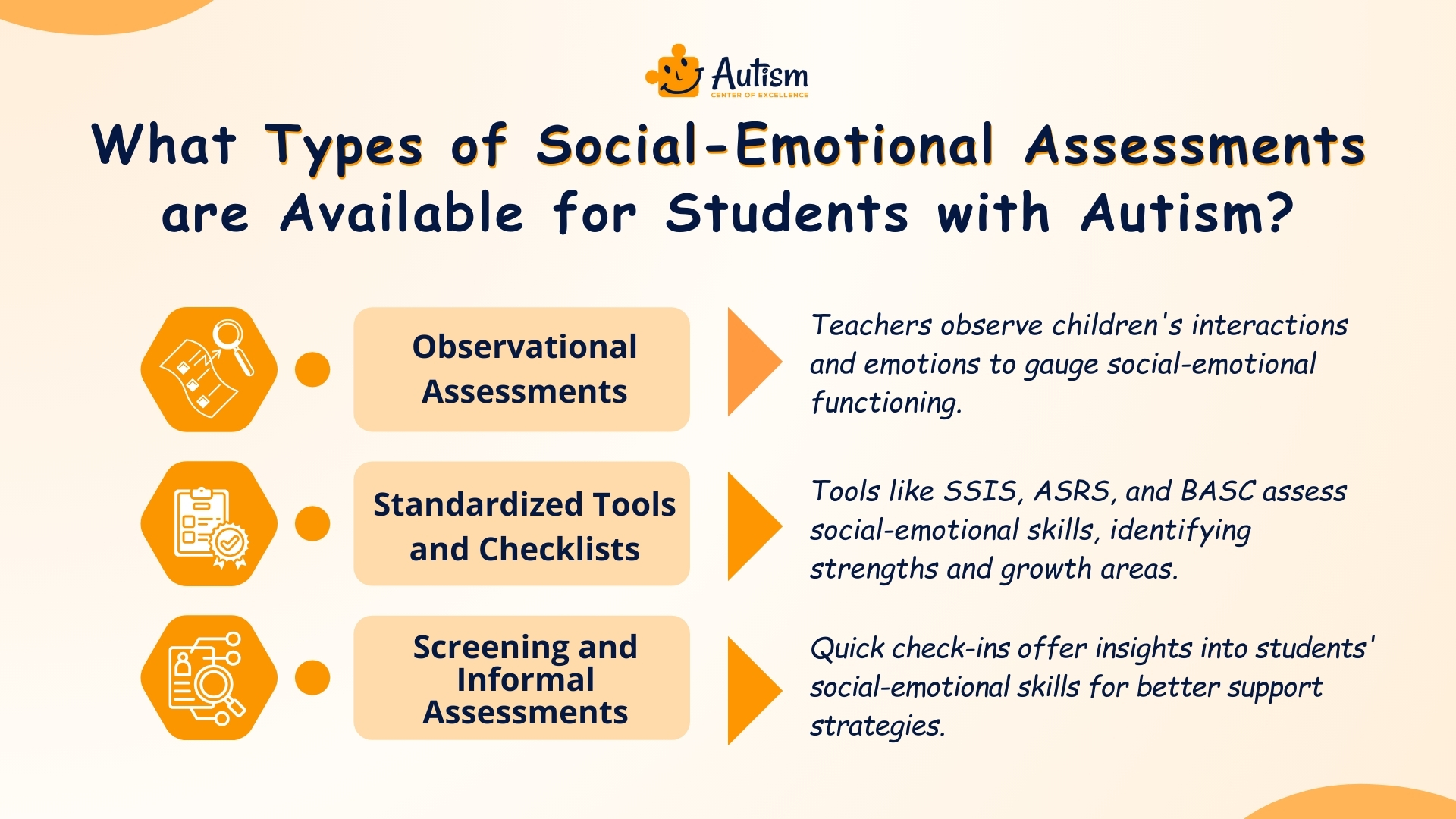
Types of Social-Emotional Assessments for Students with Autism
Understanding the different types of social-emotional assessments for students with autism is like discovering various methods to help them shine their brightest.
Observational Assessments
Imagine being a detective watching a student in action—this is what observational assessments are all about. By observing how the child interacts and manages emotions in everyday contexts, teachers and caregivers can learn about their social-emotional functioning to provide more meaningful support.
Standardized Tools and Checklists
These are kind of special measuring tools that help you Understand Social and emotional skills in a better way. Popular tools like the Social Skills Improvement System (SSIS), Autism Spectrum Rating Scales (ASRS), and Behavior Assessment System for Children (BASC) provide structured ways to assess and track a student’s progress, offering a clear picture of where they might excel and where they could use more practice.
Screening and Informal Assessments
These are like friendly check-ins that help us get a quick look at a student’s social-emotional skills. Social-emotional screening and informal assessment provide a flexible approach to understanding the strengths and challenges of the students, thus making it easier for educators and parents to adapt support strategies in an effective and nurturing manner.
By using these varied assessment methods, we can ensure each student receives the personalized support they need to develop their social and emotional superpowers.
Enjoying Reading?
Join Our Weekly Newsletters!
Subscribe now to stay updated with our latest email updates.
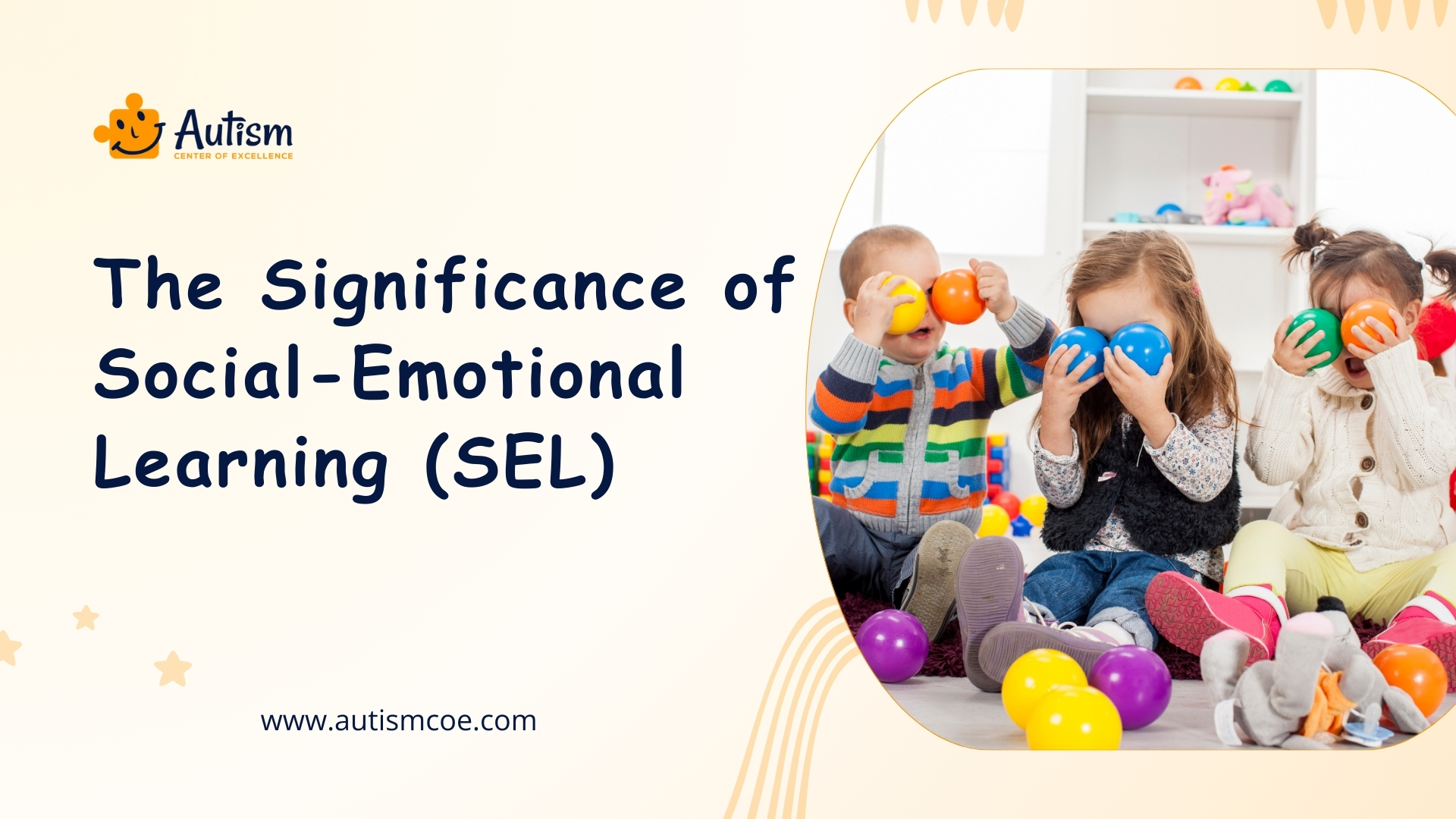
Importance of Social-Emotional Learning (SEL) for Students with Autism
Social-Emotional Learning (SEL) is like a magical toolkit that helps students with autism grow in amazing ways. SEL programs and interventions are super important because they teach students valuable skills that boost their academic performance by improving focus and problem-solving abilities.
These programs also make peer relationships more effective so students-they can then easily make friends and act cooperatively with their peers. In addition to this, SEL promotes increased Self-Regulation, so that a student can better regulate their feelings and reactions, resulting in a more peaceful and constructive school experience.
Hence, through social-emotional skills assessment and social-emotional screening, we ensure that we tailor our SEL programs so that they answer the specific needs of every student, making them better equipped inside and outside the classroom.
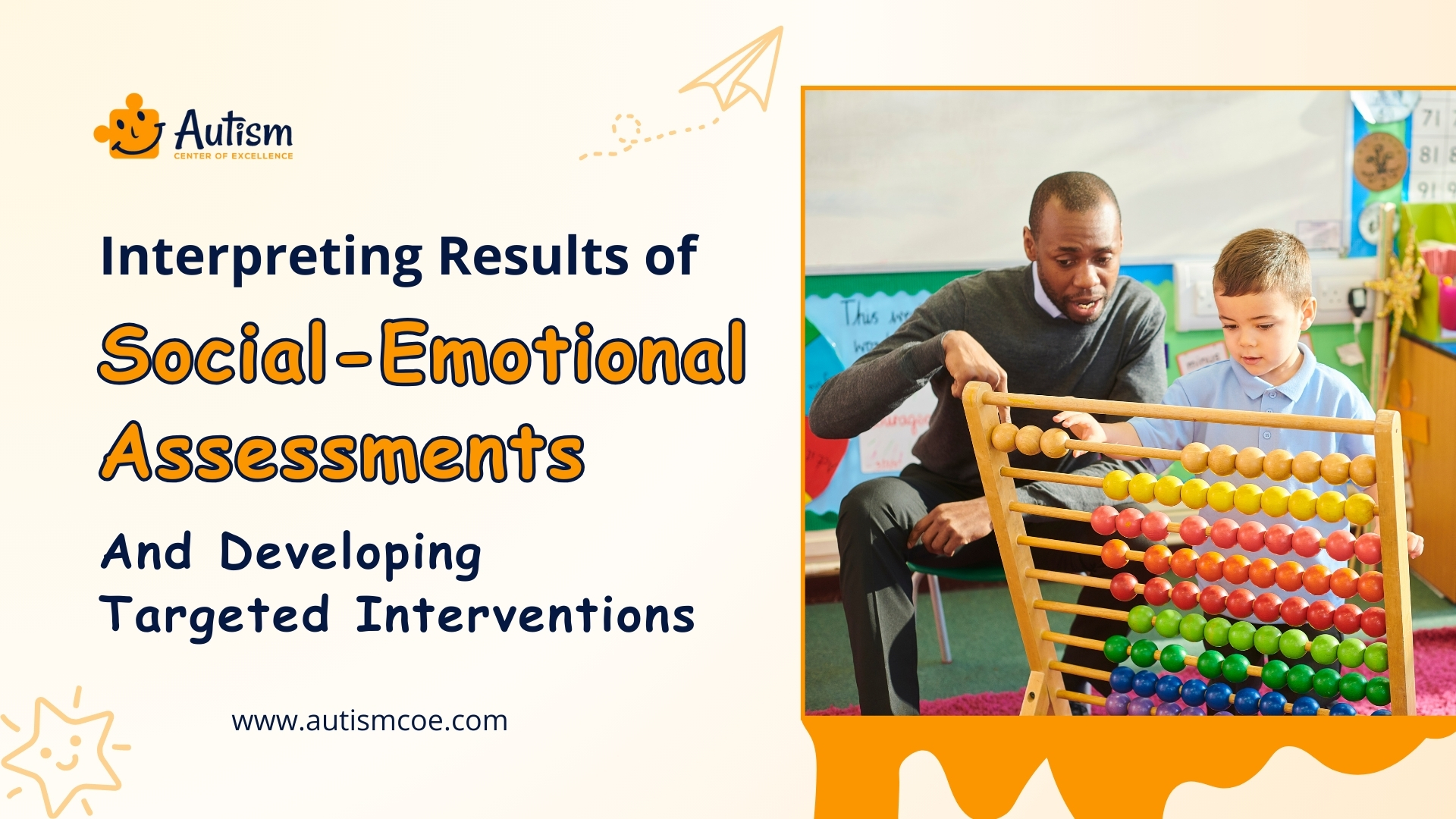
How to Interpret Assessment Results and Plan Interventions
Interpreting the results of an assessment is like discovering a treasure map, showing the best possible path toward helping a student with autism reach their full potential. Using the results, educators and clinicians can set specific goals for individual students, working with their unique strengths and weaker points.
Through close consideration of data from assessments involving students’ social-emotional growth, emotional development, and social development, the teacher will be able to identify skills that need to be practiced, as well as the most effective strategies to use. This way, every student learns uniquely, making learning both fun and meaningful.
It is in this journey that the role of collaboration between the families and Schools Plays an Important Role. If they work together, then they can share insights and strategies to implement SEL techniques that truly resonate with the student. It becomes integral teamwork because they ensure that the child receives the same sort of growth support from school and home.
Through regular communication and shared goals, families and educators can create a nurturing environment where students feel empowered to develop their social and emotional skills, highlighting the importance of social emotional learning in their daily lives.
Frequently Asked Questions & Answer
Why are Social-Emotional Assessments Important for Students with Autism?
Social-emotional assessments help identify individual strengths and areas for growth, guiding personalized support that boosts social and emotional skills development.
What are SEL Programs for ASD?
SEL programs teach students with autism how to understand emotions, communicate effectively, and build relationships, enhancing their social and emotional learning.
Can Social-Emotional Assessments Be Part of an IEP?
Yes, these assessments can be included in an Individualized Education Plan (IEP) to set tailored goals for the student’s emotional and social development.
What is the Best Assessment for Autism?
There isn’t one best assessment, but tools like the Autism Spectrum Rating Scales (ASRS) and Social Skills Improvement System (SSIS) are commonly used for comprehensive evaluations.
Conclusion
The assessment of social-emotional development is like a compass guiding us to better Support Students with Autism in reaching their full potential. Detailed social-emotional screenings and skills assessments provide a foundation for tailoring interventions that nurture emotional and social growth. Such evaluations serve as a crucial step in that they emphasize the importance of social-emotional learning and provide an ideal pinpoint of students’ unique needs that are used as a basis for support aiming to build confidence and independence.
The AutismCOE ABA Clinic specializes in helping children with autism develop their social and emotional skills through tailored programs that combine innovative teaching methods with compassionate care. By prioritizing emotional and social development assessments, Autism Center Excellence ensures that every child receives the support needed for holistic growth. By embracing these approaches, we empower students with autism to navigate the world with confidence and joy, encouraging everyone to pursue assessments and interventions that foster this growth.
Suggested: Unit 8: How to Assess and Evaluate School Readiness for Children with ASD?
Please Note: The content of this blog is for informational purposes only and should not be considered a substitute for professional medical advice, diagnosis, or treatment. Consult a qualified healthcare professional for personalized guidance tailored to your specific situation.

Bhavika Bhasin
Bhavika Bhasin is the Research and Marketing officer at AutismCOE. She works with children and adults with ASD. Her clinical research includes evaluating various available autism screening and diagnosis methods and their efficacy. She is currently developing a novel screening exam that is indicated to be more accurate than the existing available exams. She is also writes articles papers for various publications.

